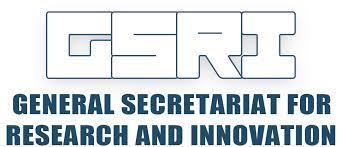
Food quality and safety assurance are critical issues to the Food Industry, a fact reflected in the size of the global market for the identification of harmful substances in food expected to reach 17B € by 2022. In order to ensure food quality and to safeguard public health, regulatory authorities have set maximum allowable concentrations and rigorous control procedures for substances considered as contaminants or fraud agents in food. The validated methods are usually carried out by qualified personnel either in the quality assurance laboratories of the industry or in certified external laboratories. In many cases though, when the raw materials are delicate and susceptible to contamination or adulteration, such as milk, it is necessary to check it for contaminants and/or fraud as quickly as possible and preferably at the collection sites. FOODSENS is a groundbreaking photonic tool conceived to meet the pressing need of the Food Industry for compression of time and cost of quality assurance procedures. The breakthrough nature of the proposed system and its potential usefulness for the Food Industry will be demonstrated in a case study that will include: (a) the simultaneous detection of aflatoxin M1 (AFM1) and bovine casein at the milk collection sites, and (b) the detection of Bacillus cereus and Listeria monocytogenes within 10 min if samples have loads >100 CFU/mL and up to 6 hrs for very low or zero loads. Bacteria and AFM1 are pertinent to all types of milk. Their detection above the acceptable limits automatically results in product rejection. Fighting fraud mainly concerns consumers with allergic predisposition to cow’s milk and PDO products made by sheep’s/goat’s milk. The disruptive FOODSENS tool is based on a directly-immersible photonic chip operating as a label-free biosensor. Despite its ease-of-use resembling that of a strip test, it is capable of delivering accurate, quantifiable answers within minutes. The photonic chip exploits the so-called Broadband Mach-Zehnder Interferometry (BB-MZI), a detection principle already proven to have the sensitivity limits required by the Food Industry. Each chip will contain 3 BB-MZIs, 1 reserved to serve as a reference with its sensing arm coated with an inactive protein. Inclusion of the reference BB-MZI enables the automatic baseline correction and suppression of sample matrix effects, allowing for highly sensitive detection by a single, self-referenced measurement by simple immersion of the sensor into the sample. To achieve its goals, FOODSENS will exploit the experience in innovative biosensors of 2 research laboratories of NCSR “D” and the knowhow of Agricultural University in detection of microorganisms in food samples. Their knowhow will be combined with the creative capacity of ThetaMetrisis, a SME specializing in technological solutions for photonic systems. Most importantly, the evaluation of FOODSENS will be carried out by one of the largest Food Industries, JOTIS, which will be responsible for the pilot application of the system developed through the project in its facilities. Finally, the specific task to promote and disseminate the results both in the academic and business community will be coordinated by SEVT and the PRAXI network.
